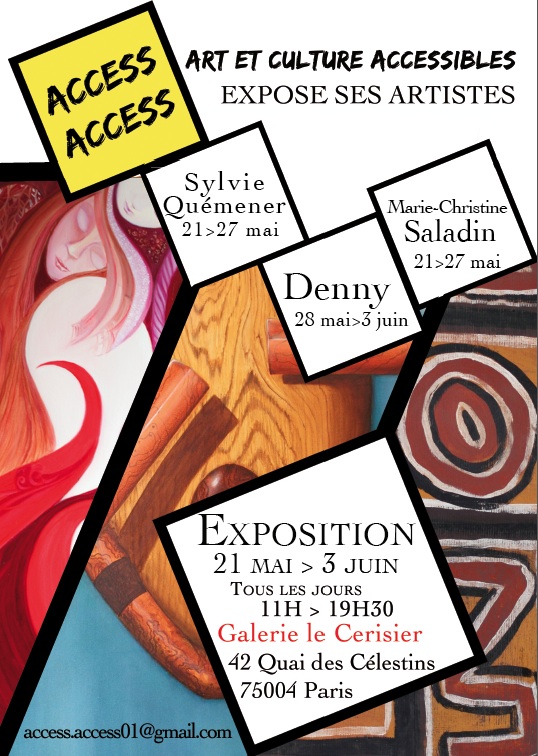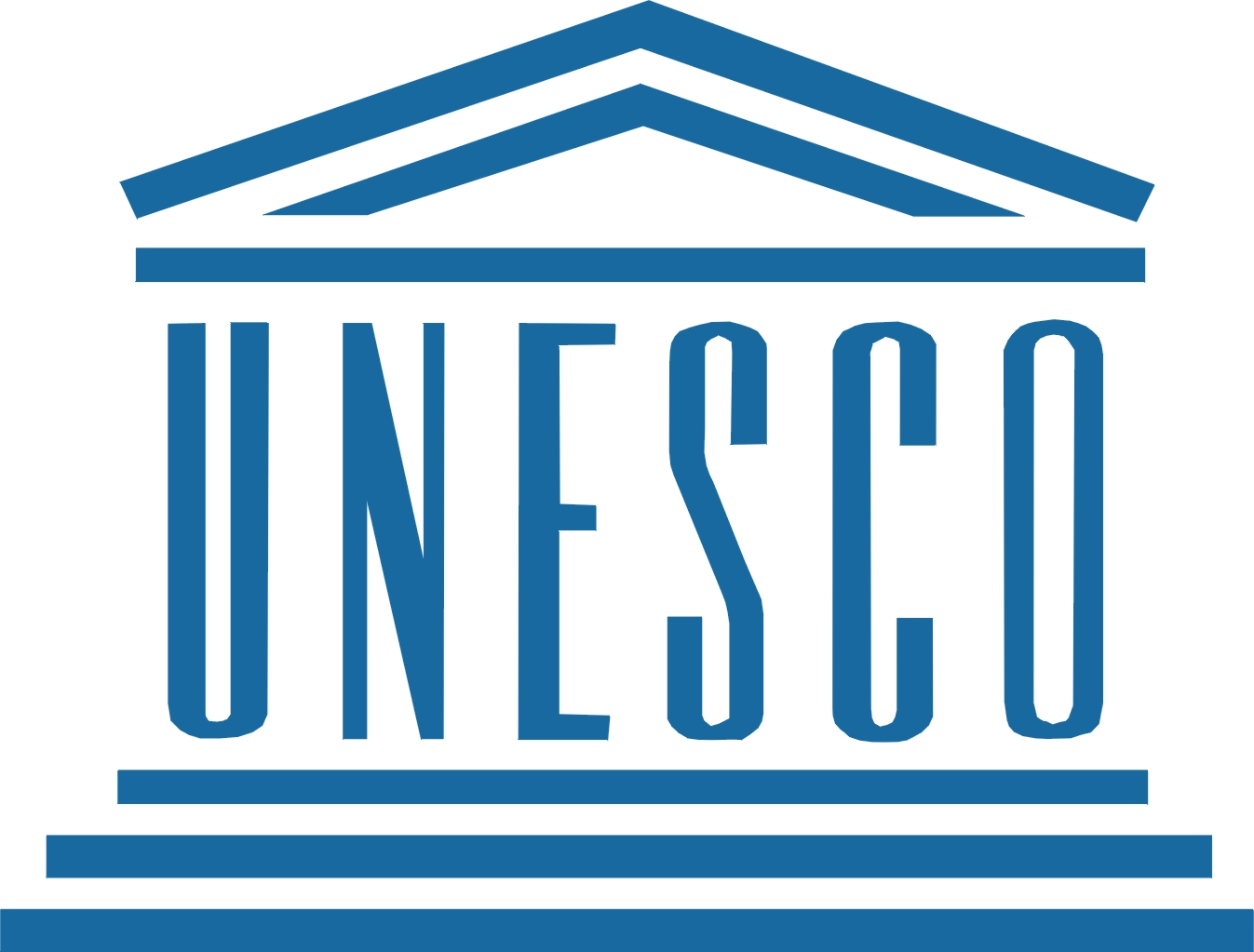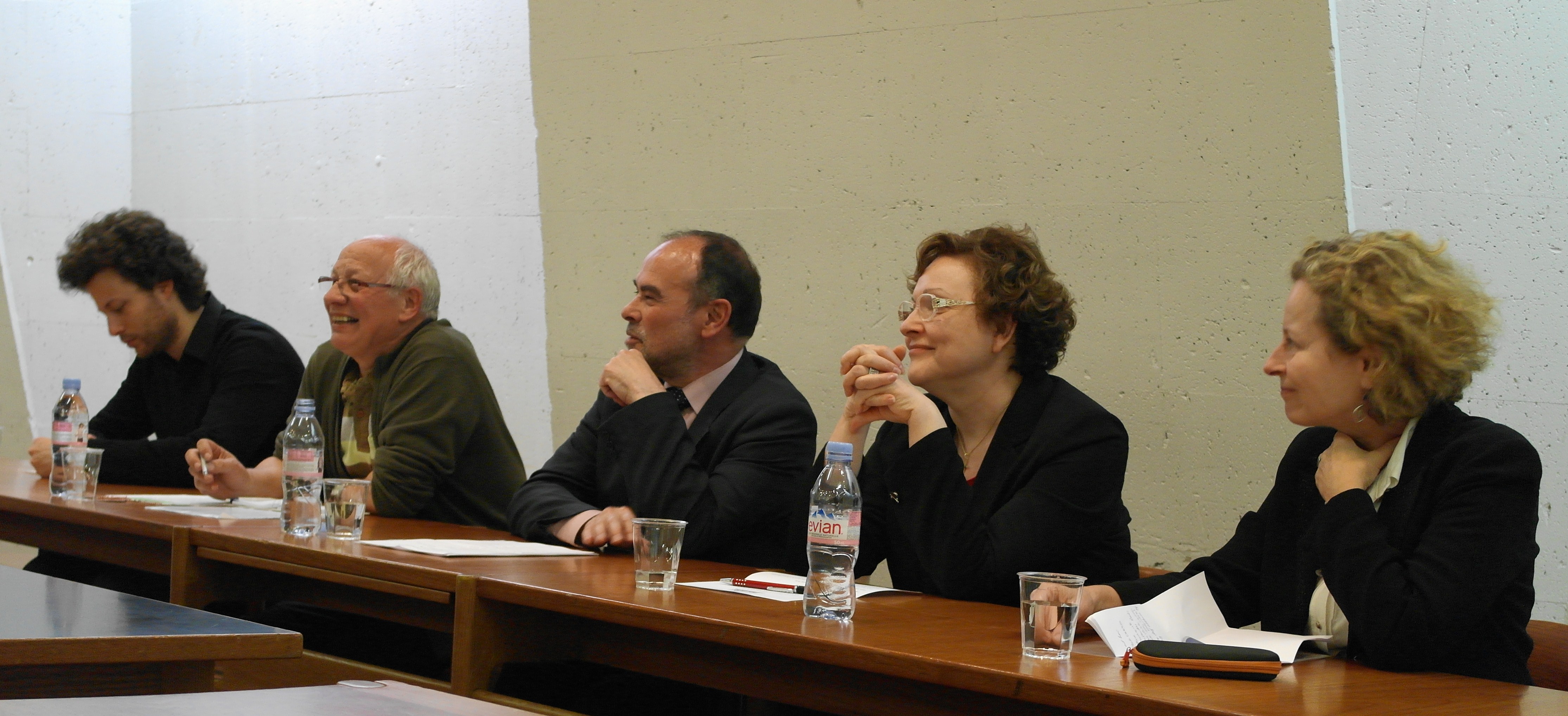Club UNESCO Sorbonne (dont membres au sein du ACCESSACCESS organisent une exposition d’exception)
vous y invite vivement :
AccessAccess ART ET CULTURE ACCESSIBLES a l’immense plaisir de vous convier à sa seconde exposition à Paris.
Nous exposons 3 de nos artistes pendant 2 semaines avec 3 accrochages différents !
Sylvie Quémener revient cette année en présentant de nouvelles œuvres de 2011 et de 2012. De nouvelles formes, des volumes et des couleurs qu’elle a pris le soin de réinventer au sein de son œuvre vous attendent sur les murs de la galerie le Cerisier, où elle montre la femme, le rêve, la danse, des rencontres…multiples !
Denny expose pour la première fois sa seconde phase du métaréalisme déclinée en peinture. Pour autant l’artiste n’en est pas à sa première exposition ! Depuis près de 40 ans il a forgé son pinceau qu’il ne cesse de tremper dans le monde qui l’entoure. Il nous a fait confiance parce que nous avons la même idée de l’art et du rôle de l’artiste!
Marie-Christine Saladin montre, montre, montre ! Son travail est vaste et elle a sélectionné avec nous, le meilleur de son univers pour l’exposer à Paris, ville qu’elle connaît si bien : elle a pu tant de fois déjà embellir divers espaces de ses compositions aux fls rouges si différents mais qui se rejoignent dans une unité complexe.
***
AccessAccess expose pour ouvrir la galerie dans le monde des galeries fermées. Nous exposons, parce que nous voulons remettre l’art et l’échange humain au centre des réflexions. Exposer à Paris, en mai, à Marseille en juin, puis à nouveau à Paris…est pour nous une chance, pas une opportunité.
Nous agissons. Les théories deviennent pratiques réelles, les idées se transforment en projets authentiques.
Pour quoi faire ? Pour changer l’image de l’art et de la culture. Pour rendre l’art et la culture plus accessibles. Mais pas pour le faire sans vous, pour prétendre changer les choses en vous excluant. Mais pour les réinventer avec vous, pour construire l’art et la culture accessibles de demain, maintenant !!!
MERCI. Nous serions réellement heureux de vous rencontrer lors de cette exposition : alors venez nombreux !
Exposition AccessAccess
3 ARTISTES, 2 SEMAINES, 3 ACCROCHAGES
Du 21 mai au 3 juin 2012
Galerie le Cerisier
42 quai des Célestins – 75004 PARIS
Tous les jours de 11h à 19.30 h
Lun.>Dim.
access.access01@gmail.com – http://accessaccess.over-blog.com/




